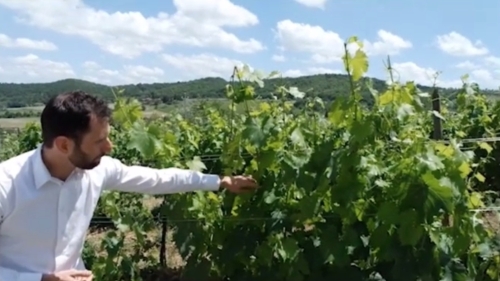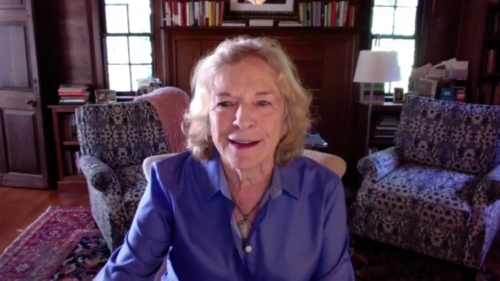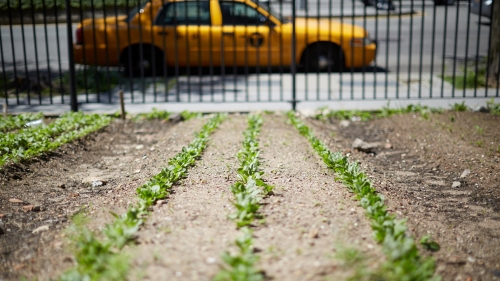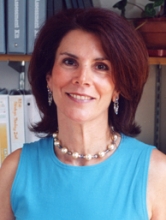“I hope you’ve all saved room for gelato!” Associate Dean for Global Affairs and Experiential Learning and Clinical Professor of Nutrition Lisa Sasson exclaimed over Zoom.
Professor Sasson’s class had just concluded a Q&A discussion with an Italian ceramic artist on traditional processes of preserving wine in terracotta pots and was transitioning to a behind-the-scenes tour of a gelato shop in Florence, Italy.
While not physically abroad due to the global pandemic, students taking “International Study in Food, Culture, and Nutrition” spent three weeks exploring Italian food and nutrition from historical, political, agricultural, culinary, and cultural perspectives through interactive Zoom sessions.
“I wanted students to feel, the best way possible, that they are in Italy,” Sasson said.

A screenshot from a tour of Salcheto Sustainable Winery, Italy's first entirely energy-independent winery.
To bring the essence of the country to life, students participated in guided, virtual field trips to culinary establishments around Tuscany including a sustainable winery, an organic pecorino cheese producer, and the Sant’Ambrogio Food Market in Florence. At each stop, students were able to ask the local purveyors questions about industry trends, ingredient selections, their business goals, and more.
Other aspects of the course included interactive cooking classes with a culinary school in Florence, an Italian vocabulary lesson, a guided tour of NYU Florence’s historic Villa La Pietra, and guest lectures from Italian and American authors, food historians, and health care professionals. Together, these experts’ perspectives painted a picture of Italian culture and health beyond American media portrayals.
"The Mediterranean diet is not just about the food you eat. It’s a way of living – a lifestyle that involves slow eating, physical activity, and upholds the value of sharing a meal at the dining table with friends and family," said Nana Bonah, a clinical nutrition master’s student in the course.

Novelist, poet, and San Francisco State University professor Frances Mayes discussed the evolution of Italian cuisine and her experiences living in Cortona, Italy.
This nuanced perspective of the Mediterranean diet was reinforced by a class conversation with Frances Mayes, esteemed author of Under the Tuscan Sun and See You in the Piazza among other titles, who described the factors that continue to shape Italian culinary attitudes. Key to Mayes’ talk was the term “cucina povera,” or “poor cooking,” a concept that underscores Italian cuisine’s roots in savoring “waste-not” dishes like bruschetta and panzanella salad, which transform an ingredient like stale bread into a new dish.
Reflecting on the course, clinical nutrition master’s student Larlee Bjorkman commented that this notion of “cucina povera” inspired her to cook using parts of ingredients she might have disposed of previously. Other students noted a new desire to attain the mindful relationship with food the Mediterranean diet embodies by limiting distractions during mealtimes or shopping for produce more sustainably.
“This has been one of the most impactful courses on me and my family, as I have used knowledge gained about the Mediterranean diet daily,” Bjorkman said. “Lisa created a truly authentic experience that allowed us to be transported from our homes into the culture and life of Italy.”
Related Department

Nutrition and Food Studies
411 Lafayette Street, 5th Floor
New York, NY 10003
Phone: 212-998-5580
Email: nutrition@nyu.edu

